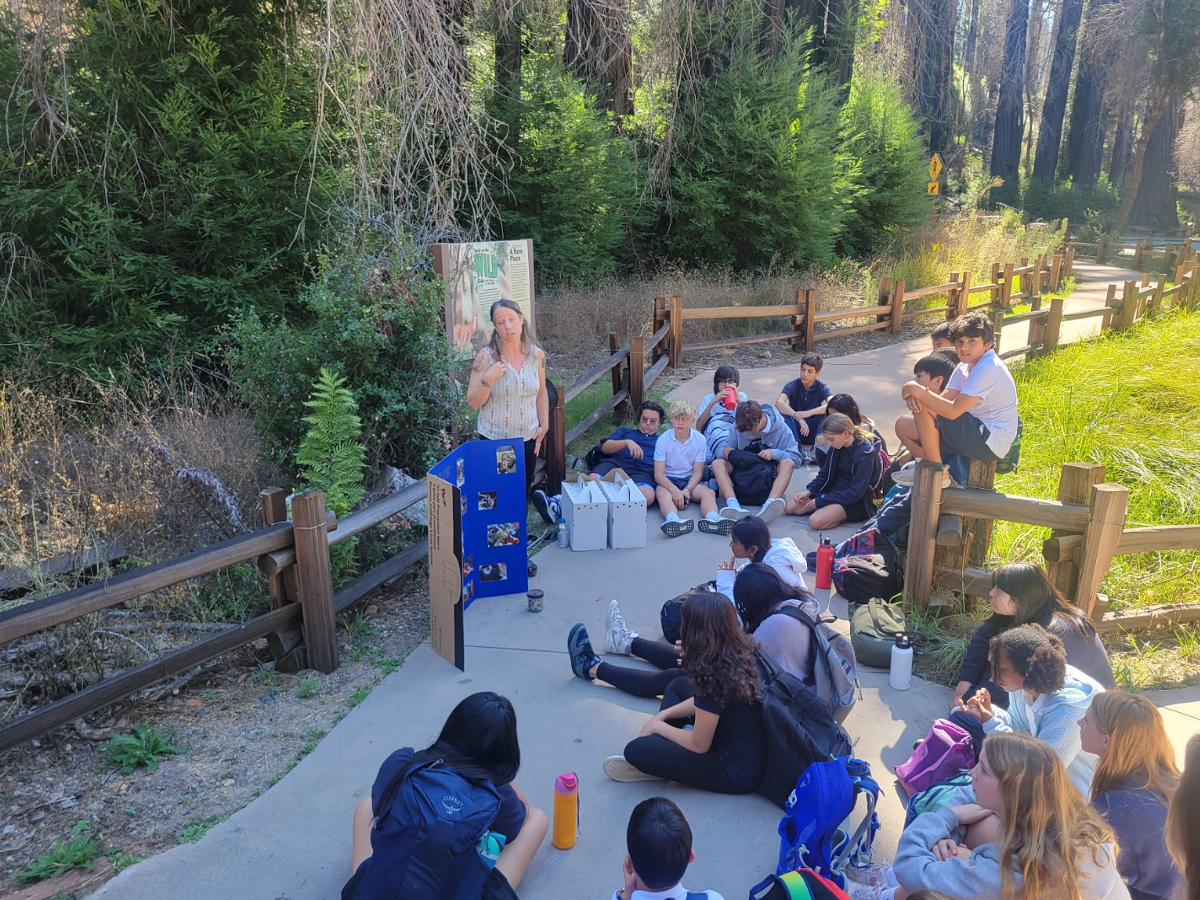“In a book I’m reading in English, actually there’s a tree that needs fire to grow and become full.”
7th Graders are deep in an interdisciplinary study of wildfire, focused in Science class on plant regeneration and observable examples of ecological succession. Their teacher shared a photo of a dirt pile in a construction site that he bikes past on Los Gatos Creek Trail, where over time a tree has started growing. Students offered ideas about where the tree came from and what might happen next.
Others shared questions, like, “I have a tomato plant that’s starting to grow out of my compost bin, is that an example of succession?”
And, “I think it’s called seed wedging, when it’s dropped by a bird. That’s how you get plants in your sidewalk cracks.”
And, “In lower school, we learned about different seeds in different plants and how they move around, like dandelions have floof and they can fly wherever in the wind, which is pretty smart if you think about it.”
In lower school, we learned about different seeds in different plants and how they move around, like dandelions have floof and they can fly wherever in the wind, which is pretty smart if you think about it.
As they prepared last week to visit the site of the CZU Lightning Complex Fire in Big Basin State Park, which started from dry lightning August 16, 2020, students shared what they remember from that evening and how their own homes and lives have been impacted by wildfire. In a video by Big Basin Park Scientists, students heard first-hand from rangers, ecologists, and volunteers about the impacts on the park’s infrastructure, animals, plants and people, and also about the recognition of the ways cycles of fire and regrowth support biodiversity—”Fire can be a healthy part of an ecosystem, as devastating as it can be for us.”
After learning foundational information about succession and how to recognize its signs in various native plants, students traveled to the State Park to gather observations for themselves and also to meet a Wildlife Rehabilitation specialist who spoke about their experience during the CZU fire: “I work with a lot of wild animals but that summer people were also finding pets who had been released or lost in the fire. There were a lot of ball pythons people were just finding out in their yards, and that needed a place to go.”
As students master the terms and concepts to describe ecology, they’re also exercising their sense of wonder, curiosity, and care for the places and living things around them.

